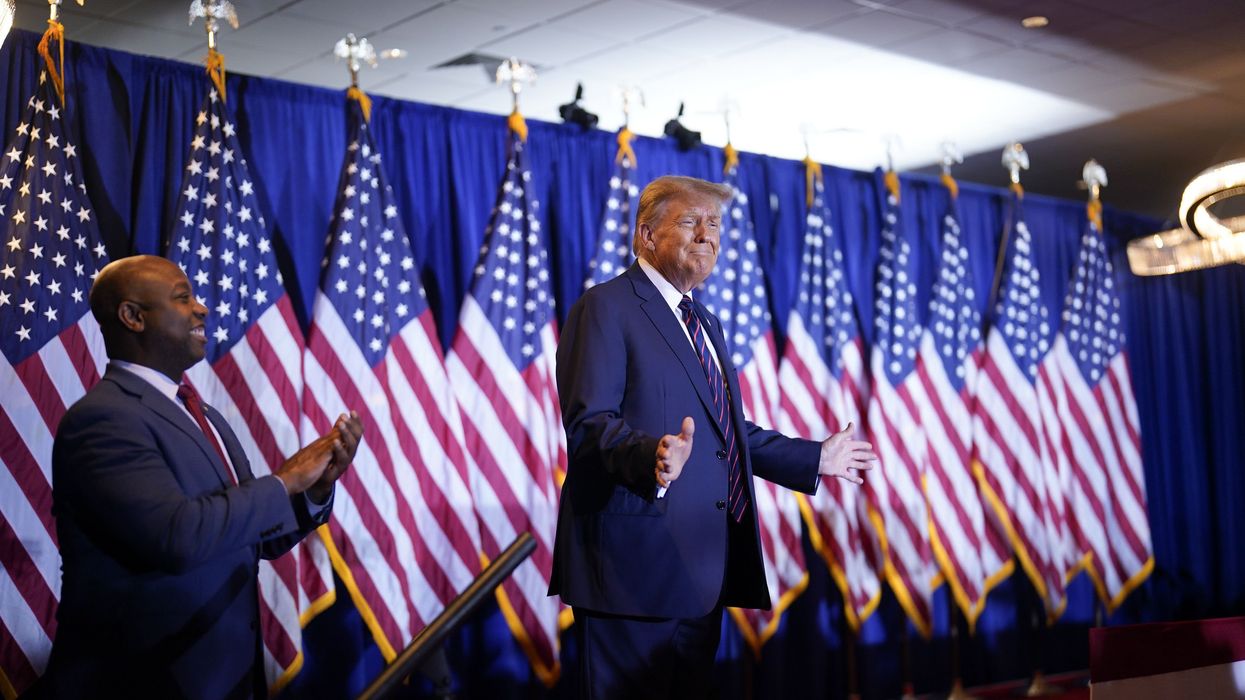Ernst is a volunteer and state leader at Veterans for All Voters (formerly Veterans for Political Innovation).
The problem with statistics is that they can be manipulated to support or refute any argument, and the Iowa caucus results are no exception. But despite some conflicting narratives that twist the results in different ways, Iowa and New Hampshire add two more brush strokes to an already clear painting – one that depicts a broken system of caucuses and primary elections.
Consider the following: On one hand, former President Donald Trump's victory in Iowa, where he won the support of 51 percent of caucus-goers, made him the clear frontrunner for the Republican nomination. Few dispute this reality. On the other hand, the 56,000 votes that propelled him to victory represent only 1.8 percent of Iowa's population, with only 3.5 percent of Iowans participating at all.
Does the will of less than 2 percent of a population (or 7.2 percent of registered Republicans) represent "the will of the people"?
New Hampshire's turnout was much more robust, at 30 percent of registered voters – t but is (almost) a third really worthy of celebration? Democracies around the world would hardly be impressed.
Moreover, the consensus after the first two states is that the eventual victors are all but certain, on both sides of the aisle, with only 400,000 voters casting ballots at all. It's hard to defend such low participation and such a narrow process as the best way to reflect the broader public sentiment. Despite a sense of bewilderment, perhaps these figures give reasons for optimism.
First, we may be close to hitting rock bottom.
Similarly dismal turnout happens in the Democratic primaries and caucuses, so this is not a partisan phenomenon. But the primary process now underway across the nation is unlike any other in America's modern history and might be reaching rock-bottom, or at least a real inflection point, regarding electoral dysfunction.
Surprises do happen, but the primary process has us on track for a rematch between candidates for the first time since 1956. But unlike that year, when both candidates were highly liked, a rematch today would be between two of the most disliked candidates on record. Polls reveal upwards of two-thirds of Americans don't want a Trump-Biden rematch, but are seemingly unable to stop it. Iowa’s 1.8 percent is able to overcome the general will of the majority, which worked fine when candidates were widely liked – but not so well when the opposite is true.
This likely outcome arguably has the key ingredients to finally make it clear to Americans that the status quo is not in our nation's best interest: that electoral reform is finally necessary, and that simply looking forward to 2028 is insanity. Are things finally so bad that it might drive good? It's quite debatable, and largely depends on you engaging with reform movements in your states and communities.
Second, pro-democracy movements are thriving.
If you're interested in revitalizing America's democratic processes, you'll find there are so many organizations and coalitions working hard to bring change, it's almost hard to choose where to plug in. This is a good problem to have, and reason to be even yet more optimistic.
Reforms are being pushed for open primaries, campaign finance changes, an end to gerrymandering, the use of ranked-choice voting and more in all 54 states and territories and are all supported by organizations that are healthily resourced, with growing volunteerism and enthusiasm. This is the energy that will turn the tide, not within a matter of decades, but hopefully in the years ahead.
If you agree that action must be taken but don't know where to begin, then I implore you to find the group that’s right for you and take an active role. Seek out and join a volunteer group, even if only to be informed of what is occurring in your community and state. If you're a veteran, consider joining us at Veterans For All Voters. Knowing that even a few readers will choose to act, I conclude with even more optimism yet.




















Trump & Hegseth gave Mark Kelly a huge 2028 gift